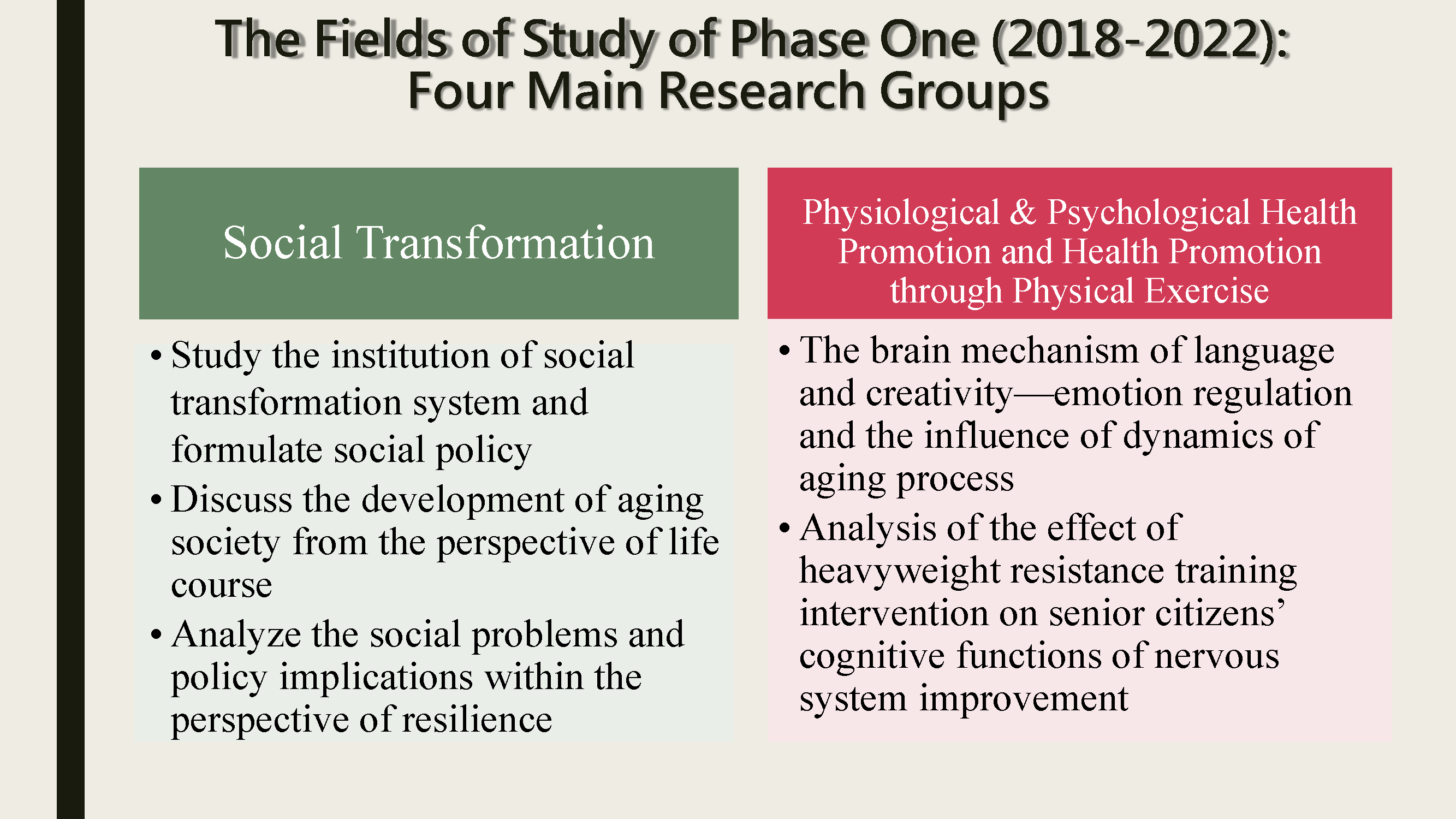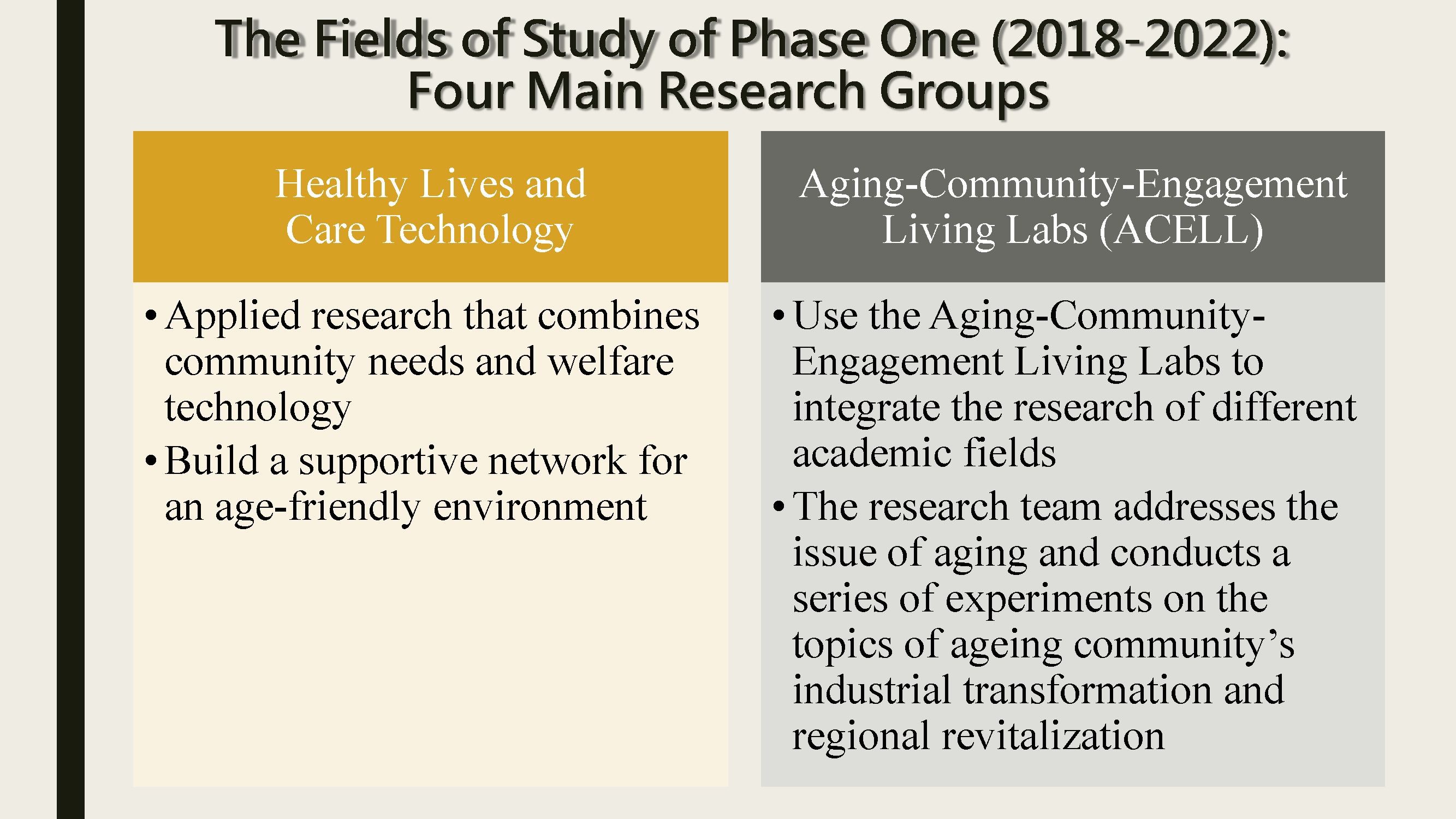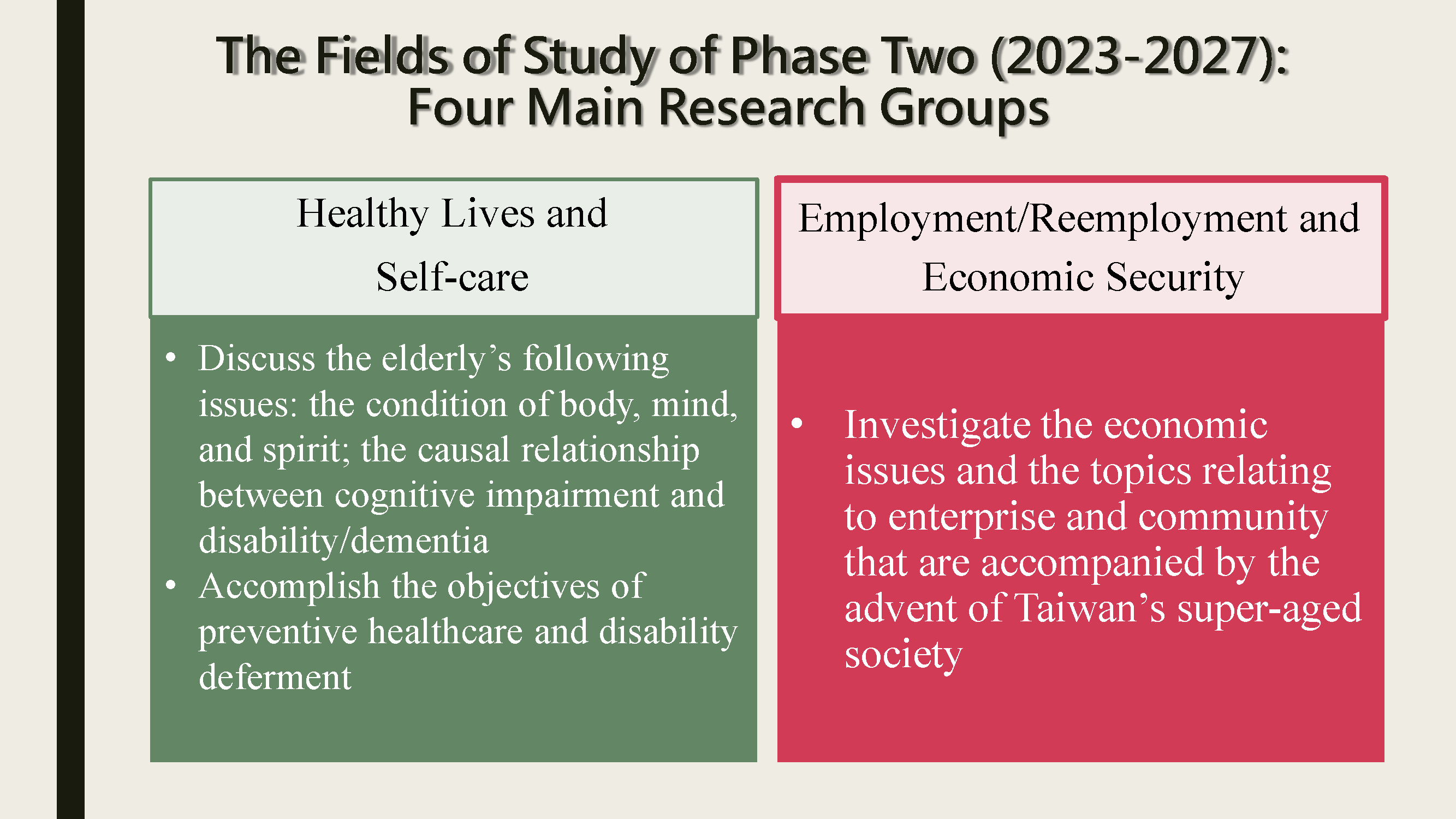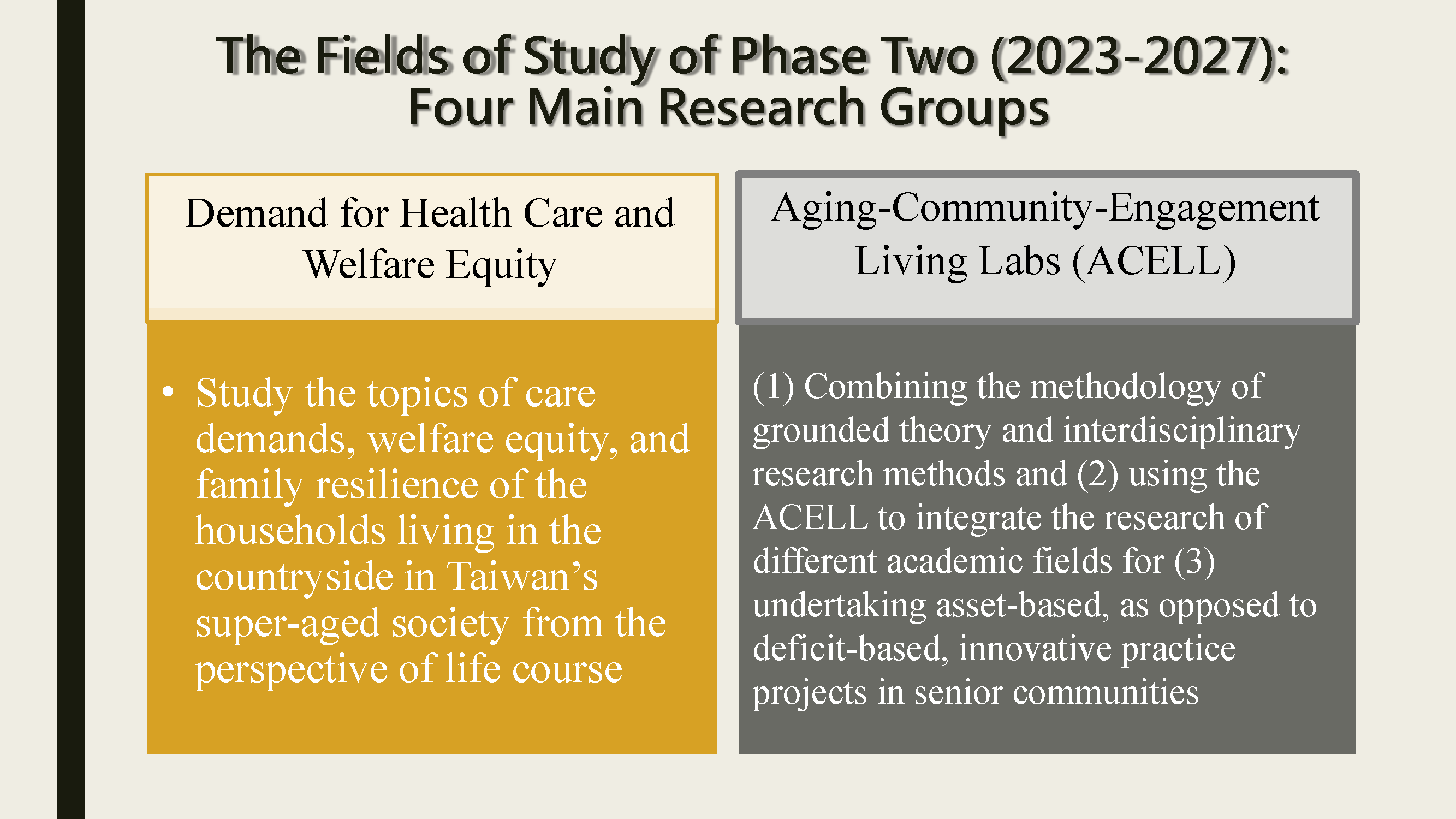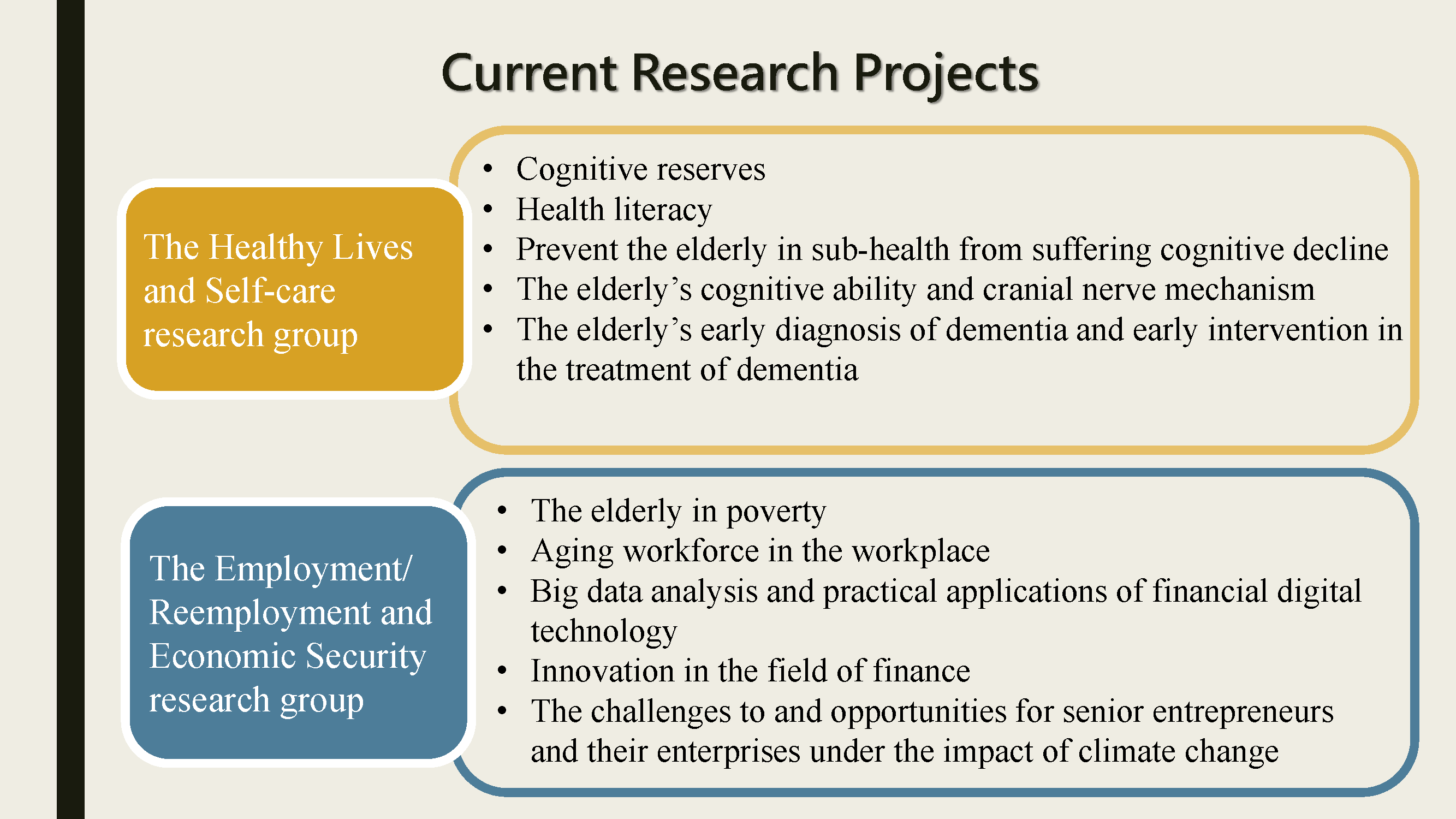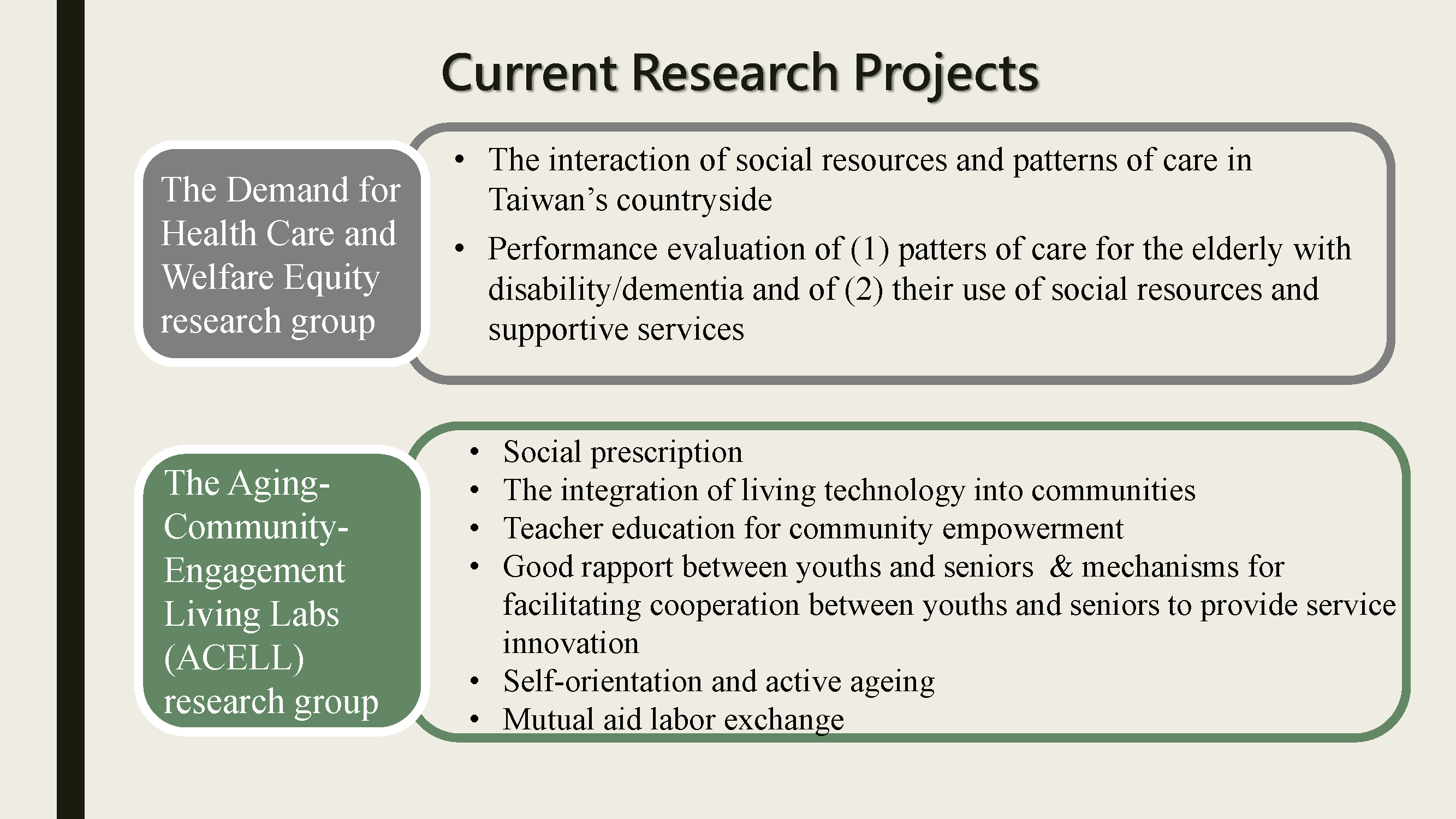Contributions/Discoveries
Founding Purpose
The Center for Innovative Research on Aging Society (CIRAS) was established in 2018 at National Chung Cheng University by the Higher Education Sprout Project, Ministry of Education, Taiwan. Since the establishment, the Center has set up seven "Aging Community Engagement Living Labs" in the three neighboring counties of Yunlin, Chiayi and Tainan, in Southern Taiwan. The Center has three research groups conducting aging research in these seven "Living Labs." They research topics respectively focus on "elderly physiology, psychology, cognition and exercise," "the development and application of gerontological technology for better elder lives and healthcare," and "social transformation." In the past five years, the research groups have published a wealth of research findings in academic journals, cultivated a group of young scholars in aging research, and established international exchanges with the benchmark universities in the world. At the same time, the Center, through transdisciplinary interactions, has fostered a enviable team workers on aging related research including life sciences, long-term health care, and health literacy.
Three key research themes of CIRAS are worthy of reiteration here. The first is the theoretical construction of the concept of "cognitive reserves" through literacy training, exercise, and other cognitive trainings for the elderly. The second has to do with the application of AI in smart care for the elderly and elderly-friendly environment. The third is the care policies from the perspective of life course. With these three research themes, CIRAS has systematically conducted government-industry-university research projects, the training of graduate students to publish academic papers, the academic exchanges with foreign scholars, and the organization of international conferences and workshops.
Building upon the solid foundation in the past five years, starting from 2023, CIRAS will continue to develop concepts, strategies and solutions for a "dignity-based super-aged society," which will be the overall goal of the Center. From 2023 to 2028 "living labs" will be expanded from current 7 to 15. These 15 different types of living labs will provide research sites for community transformation from "aging as dependency" to "aging as asset" society in Taiwan. Their research will focus on:
1. Healthy Living and Self-Care: Using precision medicine and engineering technology to help the elderly avoid the risk of disability and dementia, enhancing their self-care ability in daily life and health; strengthening cognitive reserve and health literacy; prevention of physical, mental and spiritual deterioration of the elderly; early diagnosis and intervention of diseases; life adaptation and diagnostic treatment.
2. Employment, Re-employment and Economic Security: Employment and retirement-employment and re-employment for the elderly; poverty and gender inequality for the elderly; application of financial technology and ecosphere construction for the elderly, including the promotion of financial literacy and the development of financial and sustainable technology; industrial innovation mechanism for the aging society, including workplace health promotion.
3. Demand For Healthcare And Welfare Equity: Exploring all-age family care patterns in rural areas; the causes and effects of home-return caregiving and migrant caregiving; shared care for the elderly and the disabled; cultural competence, AI care robots for the elderly; constructing the diversity of all-age care from a social transformation perspective.
In the post Covid-19 era, CIRAS will continue the cooperation and exchange with the British and Japanese benchmarking centers, as well as international research institutions in Europe, Asia, and Australia, and maintain partnerships with domestic and foreign scholars to enhance the international visibility of Taiwan's aging research. More importantly, CIRAS will develop an all-age dignity care support system by linking computer science, psychology, medicine, and social sciences. It is our goal CIRAS will become a national think tank for aging research as well as an area base for sustainable development in the Asia-Pacific region, thus, enhancing the academic and social influence of Taiwan higher education in the international arena.
Organization Chart

Goals
1. Propose policy recommendations for active aging
2. Cultivate interdisciplinary talents for an aging society
3. Build an internationally renowned platform for aging research
4. Achieve sustainable development goals
Features
1. Focus on Major Issues
2. Based on The Humanities And Social Sciences
3. Develop "Human-Centered" Care Technology
4. Experienced in Planning And Implementing Policies
5. Deeply Engaged in Rural And Local Communities for Over 20 Years
6. Connect with local Communities to Establish Collaborative Alliances
